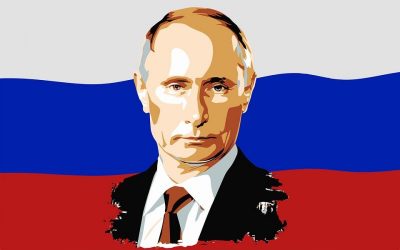Emotion Is Supplanting Evidence as the Basis for Truth

One of the reasons that truth is on the decline is that truth is becoming emotion-based, not evidence-based.
It is all about feelings. This seems to have begun with feminists, but teaching women to trust their feelings, that feelings are truth, couldn’t be kept just in the women’s locker room. It has spread into the men’s as well and is now also an affliction of some of the younger men.
I have learned this from readers’ emails. Some are puzzled by what seems to them to be a switch on my part from being for Putin to being against him. They want to know why I stopped liking him. In other words, they interpret my growing concern about his policy as an indication that I don’t like him anymore.
I am writing about Putin’s policy, not about my feelings for Putin. His policy of ignoring provocations made perfect sense for a while. It demonstrated to Europeans that Putin, unlike Washington, is level-headed and non-confrontational. Putin’s openess and responsible behavior was contrary to the image of “Russian threat” that Washington had put in European heads. The hope was that Europe would switch from being an enabler of Washington’s aggression to becoming an obstacle to it.
The problem with a policy of turning the other cheek is that it can encourage more provocations and that the provocations increase in intensity. The question I raised is about the policy, not about Putin. How long do you stick with a policy that is encouraging more provocations instead of achieving its intended goal?
There has been some movement from some European politicians toward a more responsible attitude toward Russia, but this might simply reflect disgust with Trump or be a ploy to encourage larger subsidies from Washington to buy them back into the fold. Is it enough movement to compensate for the ever more provocative and ever more insulting behavior of Washington and the British government toward Russia?
This is the question that I raise. It has nothing to do with my feelings for Putin. It is an expression of my concern that the intensifying provocations will result in nuclear war. Putin’s policy of mild or zero response has not resulted in Europe becoming a brake on Washington’s aggressive attitude toward Russia. Instead, Putin’s policy is inviting ever more intense provocations. Washington has now said that it is going to attack Syria if Syria attempts to liberate Idlib province. Washington is putting more sanctions on Russian elites, which will make them more hostile to Putin. Russian nationalists are becoming angry with Putin for failure to defend Russia’s honor. Putin’s policy does not seem to be a formula for success.
So the question is whether Putin should continue this policy.
I think that Putin has given the policy long enough and that he should have stopped the provocations several steps back by putting down a hard foot. This would have given the world the message that the idiot Americans and Europeans are driving the world to nuclear war. I believe that this would have sobered Europeans, part of the US Congress, and would have brought pressure from other countries on Washington to cool its jets. The only reason Washington gets away with murder is that the world permits it, and the world permits it because the world does not witness a powerful country standing up to Washington.
I might be wrong. Nevertheless, my question is in order. The Russian government, not me, needs to assess whether its policy is leading to the desired result or the opposite of the desired result.
Evidence and rational thought need to be at work, not feelings, not the material interests of the Atlanticist Integrationists and the Russian Jewish lobby that The Saker calls the Fifth column.
The question before President Putin and the Russian people is whether Russia can be a sovereign country independent of Washington’s control without going to war. My concern is that unless a hard Russian foot comes down quickly, the only alternatives are Russian surrender or nuclear war.
*
Note to readers: please click the share buttons above. Forward this article to your email lists. Crosspost on your blog site, internet forums. etc.
This article was originally published on the author’s blog site: Paul Craig Roberts Institute for Political Economy.
Dr. Paul Craig Roberts is a frequent contributor to Global Research.

